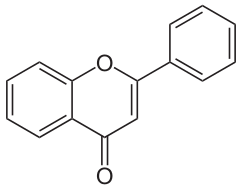“For total flavonoids, the beneficial result was only in men. But, berries are protective in both men and women,” said the study’s lead author, Dr. Xiang Gao, a research scientist at the Harvard School of Public Health and an associate epidemiologist at Harvard Medical School and Brigham and Women’s Hospital in Boston.
Monday, May 7, 2012
Berries, Tea May Cut Men’s Odds for Parkinson’s Disease..
Thursday, May 3, 2012
Eating more berries may reduce cognitive decline in the elderly
Friday, April 6, 2012
Berries, Tea May Cut Men's Odds for Parkinson's: Study
Monday, January 17, 2011
Bioactive Compounds (anthocyanins) in Berries Can Reduce High Blood Pressure
"Our findings are exciting and suggest that an achievable dietary intake of anthocyanins may contribute to the prevention of hypertension," said lead author Prof Aedin Cassidy of the Department of Nutrition at UEA's Medical School".......
Monday, January 21, 2013
Friday, September 3, 2010
Sunday, December 19, 2010
Monday, August 1, 2011
When Having the Blues is a Good Thing: Blueberries & Cancer Prevention
Now researchers from the Department of Nutrition Sciences at the University of Alabama at Birmingham, lead by Laura Newton have come up with another interesting finding about blue berries, i.e., as little as a cup a day can help prevent cell damage linked to cancer.
"Studies suggest that antioxidants may help prevent the free-radical damage associated with cancer"
Saturday, January 2, 2021
Cow's Milk Intake While Breastfeeding May Cut Child Food Allergies
In continuation of my update on cow milk
Children whose mothers drink more cow's milk during breastfeeding are at a lower risk for developing food allergies, according to a study recently published in Nutrients.
Mia Stråvik, from Chalmers University of Technology in Gothenburg, Sweden, and colleagues compared the dietary intake of 508 pregnant and lactating women, validated the data with biomarkers of fatty acid proportions from breast milk and erythrocytes, and related these data to physician-diagnosed allergy in the offspring at 12 months of age.
The researchers found that an increased maternal intake of cow's milk during lactation was associated with a lower prevalence of physician-diagnosed food allergy by 12 months of age. This association was confirmed with biomarkers (fatty acids: pentadecanoic acid and heptadecanoic acid) in the maternal blood and breast milk. There was a higher prevalence of atopic eczema seen at 12 months of age among mothers with a higher intake of fruit and berries during lactation.
"One hypothesis is that cow's milk contains something that activates the child's immune system and helps it to develop tolerance. This as-yet unknown cause could be found in the fat of the milk or in its protein content," a coauthor said in a statement. "But it could also be the case that the milk itself is neutral in relation to the immune system. Then it might be more simply a matter of a higher intake of milk fats leading to a relatively lower intake of polyunsaturated fats. This would help, because we believe high levels of polyunsaturated fat in a mother's diet can counteract the maturation of a child's immune system at an early age."
Wednesday, July 19, 2017
Animal studies examine role of raspberry products in weight management and motor function
Tuesday, July 17, 2018
Flavonoids may slow lung function decline due to aging

However, "the epidemiological evidence on the association between flavonoids and lung function is very scant," said lead study author Vanessa Garcia-Larsen, Ph.D., assistant professor in the Human Nutrition Division of the Department of International Health at the Johns Hopkins Bloomberg School of Public Health in Baltimore, Maryland. "So we wanted to investigate whether dietary intake and anthocyanins are associated with lung function decline in middle-age adults."
- a slower rate of annual decline in FEV1 than those in the lowest quartile: -9.8 milliliters per year (mL/yr) vs. -18.9 mL/yr.
- a slower rate of annual decline in FVC than those in the lowest quartile: -9.8 mL/yr vs. -22.2 mL/yr.
- a slower rate of annual decline in FEV1/FVC: -0.02/yr.
"Our study suggests that the general population could benefit from consuming more fruits rich in these flavonoids like berries, particularly those who have given up smoking or have never smoked, Dr. Larsen said. "For smokers, quitting remains the best thing they can do to protect their health."
Thursday, June 6, 2013
Cancer Fighting Foods.............
Wednesday, April 3, 2019
Eating blueberries every day could help decrease blood pressure
- Effects on blood vessel function were seen two hours after consumption of the blueberry drinks and were sustained for one month even after an overnight fast.
- Over the course of the month, blood pressure was reduced by 5mmHg. This is similar to what is commonly seen in studies using blood pressure lowering medication.
- The drinks containing purified anthocyanins led to improvements in endothelial function. Endothelial cells act as a barrier between the blood or lymph and the surrounding body tissue, as well as playing key roles in blood clotting and regulating blood pressure.
- Neither the control drink, the control with fiber or the control with minerals and vitamins had a significant effect on FMD at two and six hours after consumption.









